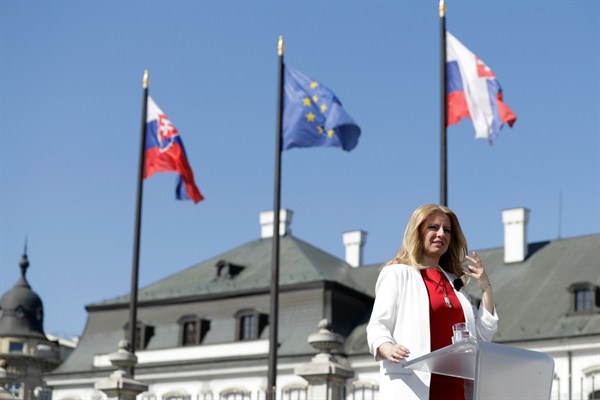The election of Zuzana Caputova as Slovakia’s first female president last month was a landmark in more ways than one. The win by the 45-year-old lawyer and activist represented a liberal turn in Central Europe, where right-leaning, populist governments have been in power for several years.
Much of the news coverage since Caputova’s victory has framed Slovakia as a great liberal hope that could push back populism and resurgent nationalism in the region, if not across the continent. But can this small state, which has endured political upheaval over the past year, really deliver on that lofty promise?
The election of Caputova, a single mother and political novice, was driven by a protest movement unleashed by the killing of journalist Jan Kuciak and his fiancé, Martina Kusnirova, back in February 2018. The murder is widely understood to have been provoked by his reporting on organized crime and political corruption. In early April, a former soldier, Miroslav Marcek, confessed to the brutal murders. The details of the criminal conspiracy behind the assassination, including suspected ties to the government, continue to shake Slovak society as they emerge.

